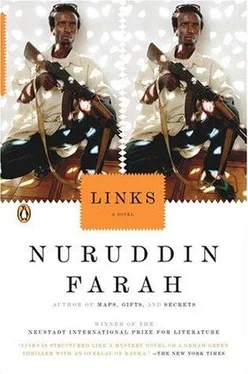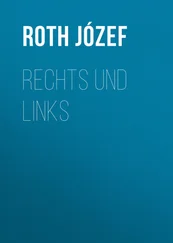BaldMan asserted, “If I haven’t said it before: We do not bother with people we do not know!”
“But he’s a human being just like you and me!” Jeebleh shouted, whirling to his feet. “He needs to be taken to a hospital. Why do you need to know his clan family before you help him? What’s wrong with you? You make me sick, all of you! Out of my way, please.”
The crowd stepped back fast, clearing a large circle around Jeebleh and the unconscious man, only to close in shortly, gawking. The hungry dog, which no one had bothered to shoo away, stood nearby, waiting and watching. As Jeebleh glared at them, he assumed that many in the crowd thought he had suddenly gone mad, and might harm them. In the quiet that followed, as they gathered around him in the attitude of spectators assembling for the timeless pleasure of it, he knelt down again.
It seemed that the epileptic had started to undress before losing his consciousness and falling. His hands a little unsteady, Jeebleh rearranged the man’s sarong as well as the circumstances would permit, and straightened his legs. But he had no idea what to do next. So he took the man’s head in his hands, believing that this would help release the pressure of his teeth on his tongue.
The crowd came closer, their expressions changing from barefaced indifference to total concern. When the epileptic stirred in an agitated way, the spectators, thrown into a mix of fear, shock, and relief, fell back, some invoking several of Allah’s designations, others remaining silent with the panic overwhelming their hearts. Jeebleh, oblivious of their doings, tugged at the epileptic’s limbs one at a time, until the sick man responded with a tremor, like the fury of a madman unchaining himself. The epileptic shook so violently that Jeebleh had difficulty holding him on the ground.
It was in this moment of despondency that Jeebleh heard first the voice of a woman and then a car door being opened and closed. Was he conjuring things, imagining the words “Let go, let go”? When he looked up and found his eyes boring into Bile’s, he relaxed his grip. Finally he let go, happy to leave the epileptic in the capably professional hands of Bile, who would know what to do.
Now he sensed Shanta’s discreet, caring presence. She was saying to him, in the voice of a parent to a frightened child, “Come with me, then.”
Taking a moment to look at her, he was surprised by her unimposing beauty, diminished as it was by her overall expression, which was suggestive of mourning. She was tactful despite the awkwardness of their encounter. It wasn’t lost on him that someone always came to his assistance whenever he committed himself to a clumsy act. Now it was Bile and Shanta’s turn to help deal with the problem. He felt like a mischievous child who kept getting into trouble. Perhaps the time would come when he would run out of people to offer him a lifeline.
“Tell me everything!” Shanta said. But she didn’t even listen. Instead, she led him by the hand, away from where the epileptic had collapsed.
That the hungry dog was gone was a relief to him.
THEY HAD WALKED SCARCELY TWENTY METERS WHEN HIS SENSES AWOKE TO the pervasive smell of excrement and the rotten odor of waste. Shanta’s questions helped take his mind off the overwhelming smell. “Tell me about the dog!” she said.
“Which dog?”
She linked her arm to his and kept pace with his slow gait. “Tell me about the dog and the cruel boy in fancy clothes.”
He told it to her in a short form.
She said, “Has it occurred to you that you cannot be good in a conscientious way in a city in which people are wicked and murderous through and through?”
He let that pass without comment.
“Now tell me about the elders!”
Again, he gave her an abbreviated version.
She said, “Do you realize what you’ve done?”
“What have I done?”
She wondered aloud whether he realized that he was rubbing pepper and salt on the communal wound, reminding them of their human failures. She pointed out that the source of his problem was fundamentally this: He always occupied the moral high ground. She added, “Because of this, you had to be humbled.”
He was having difficulty breathing, not because the smells were new to him — they weren’t — but because they had become even more overpowering. People living in such vile conditions were bound to lose touch with their own humanity, he thought; you couldn’t expect an iota of human kindness from a community coexisting daily with so much putrefaction. Maybe this was why people were so cruel to one another, why they showed little or no kindness to one another, and why they were blind to the needs of a bitch in labor or an epileptic in a convulsive seizure.
They came upon crows partaking of a spread of carrion. Three or four of these grotesque birds separated themselves from their colleagues and caught up with Shanta and Jeebleh in their leisurely walk. Bolder than he remembered them, the crows scoured the road ahead, hopping forward, then slowing down, like dogs on an afternoon stroll with their masters. The crows could equally have been bodyguards, assigned to escort dignitaries across a dangerous terrain. Shanta strode ahead as if unaware of the birds’ presence, even when they flew into the air, in an attempt to keep pace, and croaked reproachfully overhead. They might have been hungry children urging their parents to take them home and feed them.
Jeebleh and Shanta came to a locked gate. Shanta bent down and worried a stone out of its position in a nearby wall. Her hand came away, palm up, maybe to show she had no key in it. The gate opened. Jeebleh recalled how often the city’s residents had to fall back on their own ingenuity. How on earth do you open an automatic gate when electricity is intermittent? People had to find inventive ways of activating electric gates manually, and find them they did. On closer scrutiny, he saw that Shanta had pulled at a string hidden in the wall, to release the gate. There!
She let him go past and pushed the gate shut, then slid the bolt up into the metal frame. As they went on, past what had been the front garden of a two-story house, his sixth sense told him that someone was pointing a gun from the upper floor. He was beginning to feel unsteady in the knees, when he saw a small boy training a toy gun on him. Did the boy belong in the house, and if so, who was he? Was he a squatter, a dangerous species camping in a redoubt? He followed Shanta into the living room, and remained standing and looking around.
“Tea?” she asked.
“Without sugar, please.”
She suggested that he sit in the chair she indicated, and went to prepare tea. He made himself comfortable and took in the contents of the living room. He guessed that a child had occupied the center stage of life in the house, a child whose presence determined the shape of things in it. But the toys were all pushed out of the way into a corner, treated without much regard, abandoned. They made Jeebleh think of the provisional nature of a child’s play left unfinished, after the flagrant defilement of peace.
He couldn’t tell from the contents of the house whether its original occupants had fled before their lives were cut short. From all indications, though, the place had been home to people of different ages, backgrounds, and professional interests, at different times. He deduced this from the titles of the books on the shelves, books now in disorder. One of the former occupants might have been an architect, another a nurse. Several others, younger in age, must have been high school students, some at the Egyptian secondary school, some at the Italian liceo classico, others at Benaadir, where the medium of instruction was English — in short, a house of polyglots.
Читать дальше












